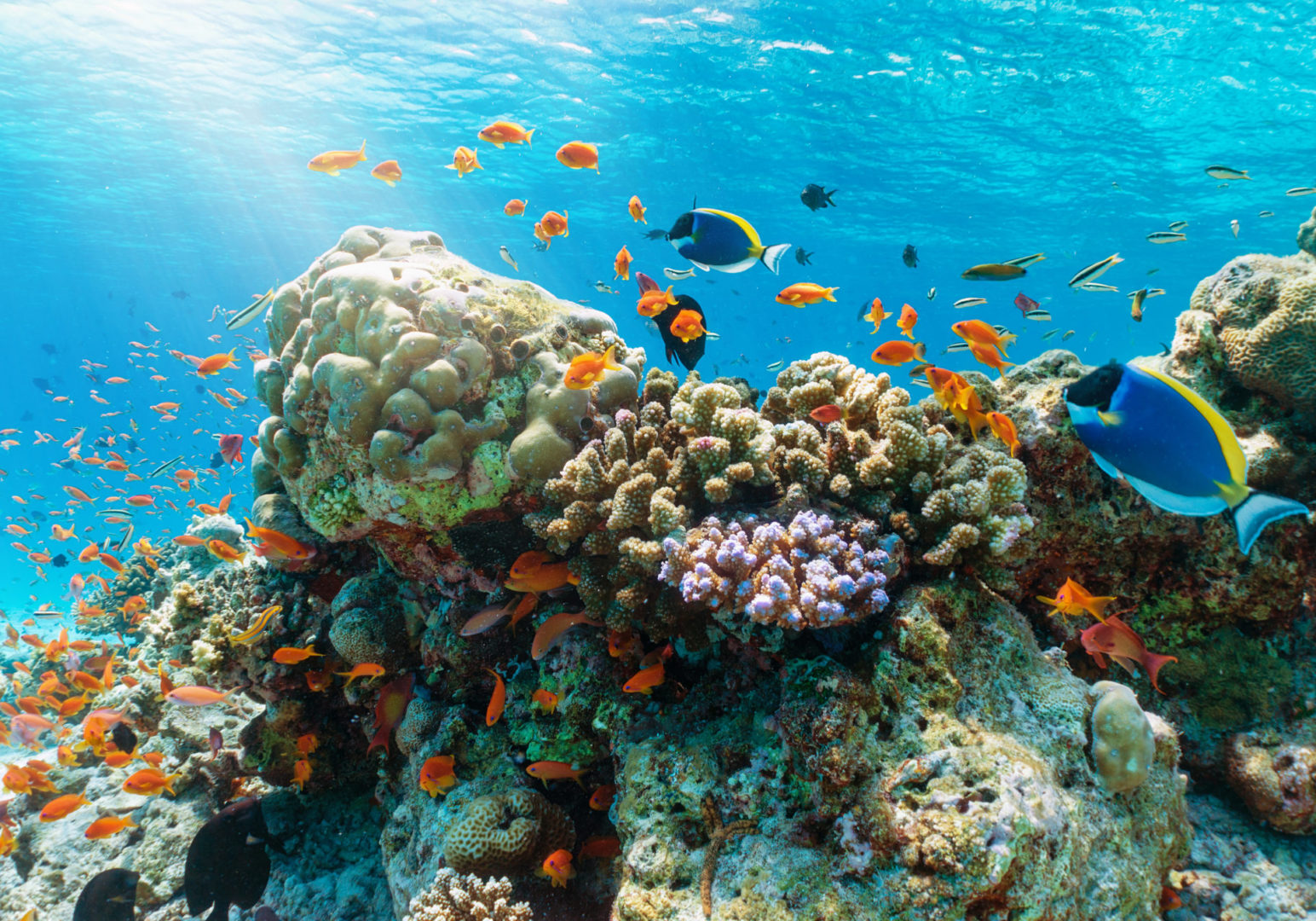
Imagine if we all did just one thing for the oceans, every day. The oceans cover over 70 percent of the planet, and they—along with the inspiring biodiversity that dwells within their depths—play a central role in regulating the Earth’s climate and supporting every breath we take. In fact, life on Earth would not be possible without them. The ocean truly is our planet’s life support system, and it is in danger.
Marine and coastal ecosystems produce over half of the world’s oxygen and store 50 times more carbon dioxide than our atmosphere. The oceans transport heat from the equator to the poles, regulating our climate and weather patterns by sequestering carbon faster and more efficiently than even terrestrial forests.
Threats to the ocean—including global climate change, pollution, habitat destruction, and unsustainable fisheries—are so extensive that more than 40 percent of the ocean has been severely impacted and no area has been left untouched by humankind’s presence.
OPS is working with partners to protect key areas of the ocean, address the impact from commercial fisheries, curtail fossil fuel development, and reform intensive agriculture responsible for global deforestation and nutrient pollution in our lakes and oceans.
Galapagos Swim Way Corridor. The Cocos-Galapagos Swimway is one of the world’s first bilateral marine protected areas that would protect highly migratory endangered marine species including sea turtles, whales, and sharks from industrial fishing. OPS is calling on the nations of Ecuador and Costa Rica to protect the marine biodiversity connected by these two World Heritage sites, creating a new paradigm in marine conservation.
This marine corridor connects the biological hotspots of Ecuador’s Galápagos Marine Reserve and Costa Rica’s Cocos Island National Park. When species move beyond the protected zones of these reserves, they enter the open ocean where they are injured or killed by industrial fishing fleets. The creation of the world’s first bilateral ‘no-take’ marine protected area will safeguard the migratory pathways of critically endangered leatherback sea turtles, scalloped hammerhead sharks, and other endangered marine life.
Ocean-Based Climate Solutions Act. OPS is supporting legislation that would halt new offshore drilling and expand carbon sequestration efforts in coastal ecosystems, and introduce an opportunity to enact a comprehensive climate policy. The Ocean-Based Climate Solutions Act is an attempt to fill in a long-standing gap in the climate conversation. In addition to a blanket ban on all new oil and gas activities on the outer continental shelf, the bill seeks to expand offshore renewable energy targets. It would also authorize important funding for coastal restoration and create new programs to boost mapping and management of critical coastal ecosystems that can act as carbon sinks.
Citizen Reef. The Great Barrier Reef (GBR) protects our climate by regulating carbon dioxide levels in the ocean. She nurtures, shelters, and protects 10% of the planet’s fish species, and contributes to the Australian economy by generating $6.4 billion every year.
OPS is joining LADbible Group Australia to call for Australian Citizenship for the GBF. The Reef is one of the world’s largest living organisms, but she is in critical condition. More than half of the shallow water corals of the GBR have been bleached to death since 2016—all due to increasing ocean temperatures. Images of the dying reef have flooded social media, but we can’t give up on her yet. The development of fossil fuels, greenhouse gas emissions, and lack of action against climate change are threatening her very life.
By making the Great Barrier Reef an Australian citizen, she’ll be protected by basic Australian rights and freedoms, including the right to life the right and physical health. As an Australian Citizen, the Australian government is obliged to make decisions in her interest, and to take real action against the one thing that is killing her—Climate Change.
Vessel traffic. Globally, large whales and other marine life are also at risk from collision with vessels. Along California’s coastline, endangered blue, humpback, and fin whales are frequently struck and killed by ships. Scientists have estimated that 80 whales die from ship strikes each year on the U.S. West Coast. With most carcasses never retrieved, this number is likely an underestimate of the actual numbers of whales that are fatally injured due to interactions with vessels.
The largest animal in the world, the endangered blue whale, is especially at risk because it uses the waters of southern California for feeding and breeding next to busy city ports, like Los Angeles and Long Beach. OPS participated in the Wake for Whales event to raise awareness to the growing threat of vessel strikes to large whales. We are also supporting the SAVE Right Whales Act which will increase funding and programs to protect the critically endangered Right Whale on the eastern coast of the United States from vessel strikes and entanglement in fishing gear.
What you can do!
Sign the petition to urge the governments of Costa Rica and Ecuador to create the important Cocos-Galapagos Swimway marine corridor.
Sign the petition to make the Great Barrier Reef an Aussie Citizen today!
.